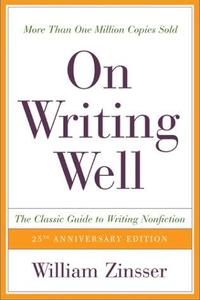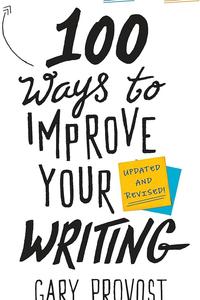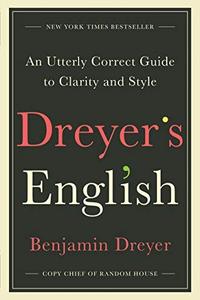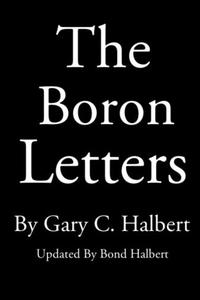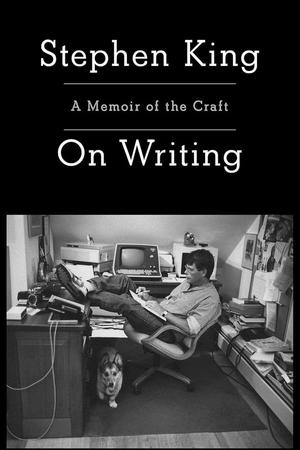
On Writing by Stephen King: Summary & Notes
by Stephen King
In One Sentence
Good writing comes from reading a lot, writing a lot, and telling the truth—kill your darlings, avoid adverbs, and let the story lead you.
Key Takeaways
- Read a lot and write a lot—there is no shortcut
- Your first draft should be written with the door closed; revisions with the door open
- Avoid adverbs—they're a sign of weak verbs
- "Kill your darlings"—cut anything that doesn't serve the story, even if you love it
- Write what you know emotionally, if not literally
- The story should come first; theme emerges in revision
Summary
An entertaining mix of autobiography & guide to writing. More focused on fiction than other writing guides, and easier to read. Lighter on writing and grammar rules, but useful because King shows that many of the commonly held beliefs about writing fiction can be ignored.
Who Should Read This Book
- Aspiring writers looking for practical craft advice
- Stephen King fans curious about his creative process
- Anyone who wants to improve their writing, fiction or otherwise
- Writers struggling with discipline and daily practice
FAQ
What are Stephen King's main writing tips?
Key tips: 1) Read 4-6 hours a day if you want to write. 2) Write every day—2,000 words minimum. 3) Avoid adverbs, especially in dialogue attribution. 4) Cut 10% in your second draft. 5) Write with the door closed, rewrite with it open. 6) Story is boss—let it lead you.
What does "kill your darlings" mean?
It means cutting words, sentences, or even scenes you love if they don't serve the story. Writers often keep beautiful passages that don't belong because they're proud of them. True professionalism means sacrificing anything that weakens the work.
📖 Chapter-by-Chapter Breakdown
Click to expand the full detailed notes for every chapter →
📖 Chapter-by-Chapter Breakdown
Click to expand the full detailed notes for every chapter →
Notes
Chapter 1
- The idea that creative endeavor and mind-altering substances are entwined is one of the great pop-intellectual myths of our time.
- It starts with this: put your desk in the corner, and every time you sit down there to write, remind yourself why it isn’t in the middle of the room. Life isn’t a support-system for art. It’s the other way around.
Chapter 2 - What Writing Is
- Let me say it again: you must not come lightly to the blank page.
Chapter 3 - Toolbox
- Remember that the basic rule of vocabulary is use the first word that comes to your mind, if it is appropriate and colorful.
- Avoid the passive tense.
- Avoid adverbs.
- The best form of dialogue attribution is said.
- There should be lots of short paragraphs and white space in an easy-to-read book.
- Even in the informal essay, however, it’s possible to see how strong the basic paragraph form can be. Topic-sentence-followed-by-support-and-description insists that the writer organize his/her thoughts, and it also provides good insurance against wandering away from the topic.
Chapter 4 - On Writing
- I am approaching the heart of this book with two theses, both simple. The first is that good writing consists of mastering the fundamentals (vocabulary, grammar, the elements of style) and then filling the third level of your toolbox with the right instruments. The second is that while it is impossible to make a competent writer out of a bad writer, and while it is equally impossible to make a great writer out of a good one, it is possible, with lots of hard work, dedication, and timely help, to make a good writer out of a merely competent one.
- But if you don’t want to work your ass off, you have no business trying to write well—settle back into competency and be grateful you have even that much to fall back on.
- If you want to be a writer, you must do two things above all others: read a lot and write a lot.
- I believe the first draft of a book—even a long one—should take no more than three months, the length of a season. Any longer and—for me, at least—the story begins to take on an odd foreign feel.
- I like to get ten pages a day, which amounts to 2,000 words. That’s 180,000 words over a three-month span, a goodish length for a book—something in which the reader can get happily lost, if the tale is done well and stays fresh.
- The biggest aid to regular (Trollopian?) production is working in a serene atmosphere.
- You can read anywhere, almost, but when it comes to writing, library carrels, park benches, and rented flats should be courts of last resort—Truman Capote said he did his best work in motel rooms, but he is an exception; most of us do our best in a place of our own.
- By the time you step into your new writing space and close the door, you should have settled on a daily writing goal. As with physical exercise, it would be best to set this goal low at first, to avoid discouragement. I suggest a thousand words a day, and because I’m feeling magnanimous, I’ll also suggest that you can take one day a week off, at least to begin with. No more; you’ll lose the urgency and immediacy of your story if you do.
- Now comes the big question: What are you going to write about? And the equally big answer: Anything you damn well want. Anything at all … as long as you tell the truth.
- Write what you like, then imbue it with life and make it unique by blending in your own personal knowledge of life, friendship, relationships, sex, and work. Especially work. People love to read about work. God knows why, but they do.
- In my view, stories and novels consist of three parts: narration, which moves the story from point A to point B and finally to point Z; description, which creates a sensory reality for the reader; and dialogue, which brings characters to life through their speech.
- You may wonder where plot is in all this. The answer—my answer, anyway—is nowhere.
- I’m not particularly keen on writing which exhaustively describes the physical characteristics of the people in the story and what they’re wearing.
- I think locale and texture are much more important to the reader’s sense of actually being in the story than any physical description of the players. Nor do I think that physical description should be a shortcut to character.
- The key to good description begins with clear seeing and ends with clear writing, the kind of writing that employs fresh images and simple vocabulary.
- Your job is to say what you see, and then to get on with your story.
- Formula: 2nd Draft = 1st Draft - 10%
- You learn best by reading a lot and writing a lot, and the most valuable lessons of all are the ones you teach yourself. These lessons almost always occur with the study door closed.
- The most important thing you can do for yourself is read the market.
Chapter 5 - On Living: A Postscript
- Writing isn’t about making money, getting famous, getting dates, getting laid, or making friends. In the end, it’s about enriching the lives of those who will read your work, and enriching your own life, as well. It’s about getting up, getting well, and getting over. Getting happy, okay? Getting happy.
- The rest of it—and perhaps the best of it—is a permission slip: you can, you should, and if you’re brave enough to start, you will. Writing is magic, as much the water of life as any other creative art. The water is free. So drink.
And Furthermore, Part II: A Booklist
- Bryson, Bill: A Walk in the Woods
- Buckley, Christopher: Thank You for Smoking
- Dickens, Charles: Oliver Twist
- Faulkner, William: As I Lay Dying
- Gerritsen, Tess: Gravity
- Golding, William: Lord of the Flies
- Hunter, Stephen: Dirty White Boys
- Krakauer, Jon: Into Thin Air
- Lee, Harper: To Kill a Mockingbird
- Schwartz, John Burnham: Reservation Road
- Smith, Dinitia: The Illusionist
- Spencer, Scott: Men in Black
- Vonnegut, Kurt: Hocus Pocus
